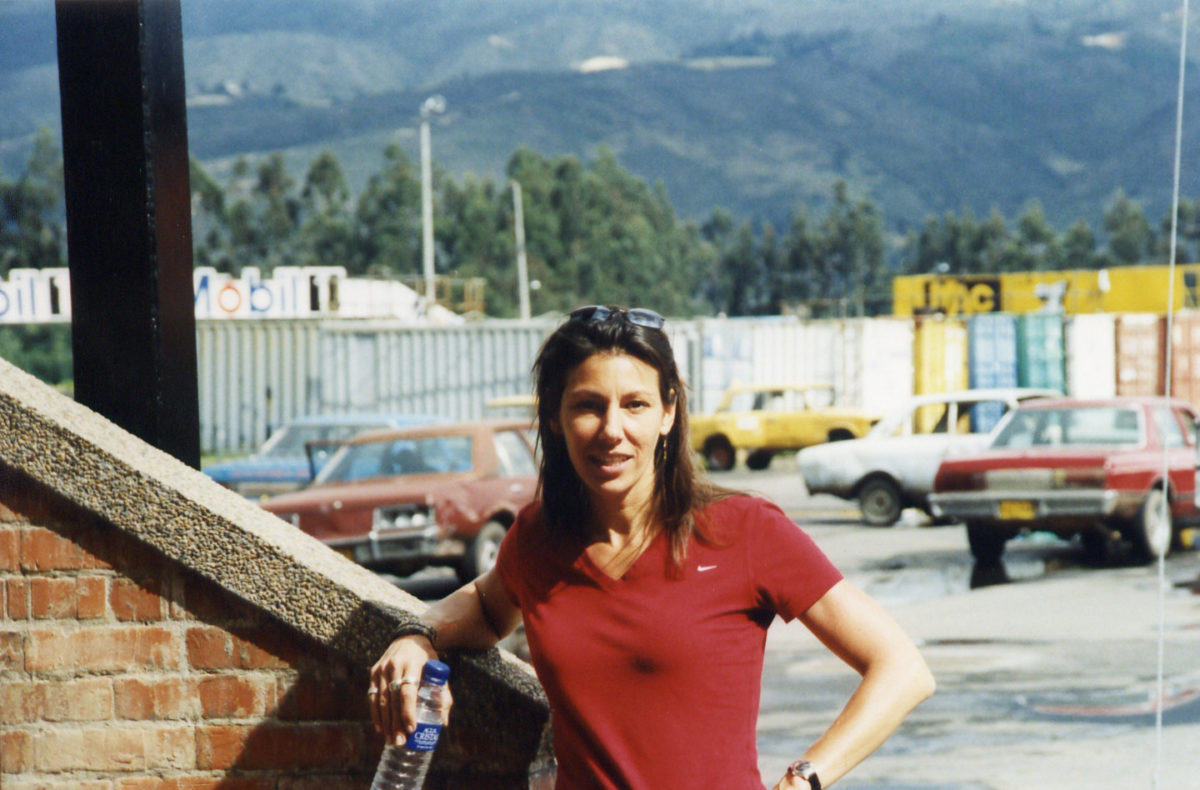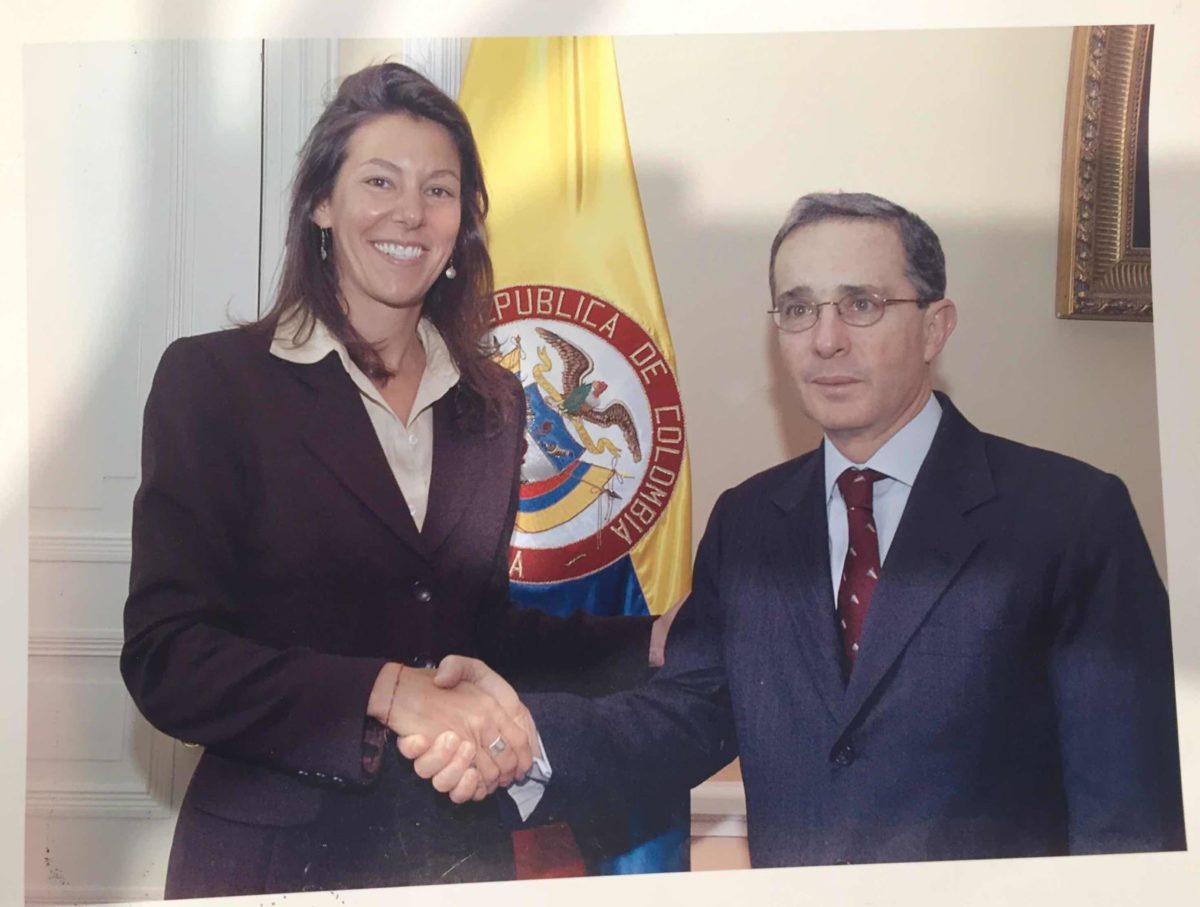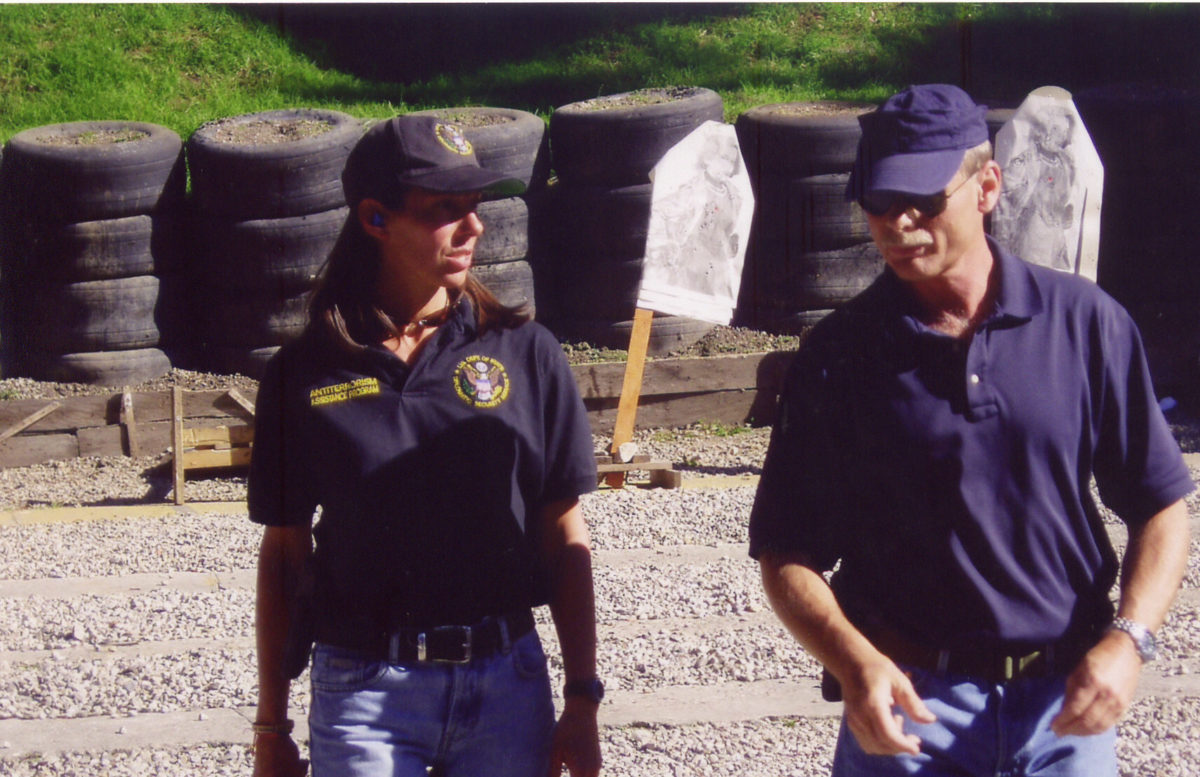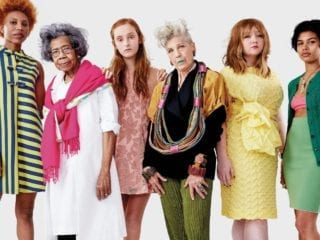“Real Women, Real Work” is a Darling series about everyday women who work in various fields including business, entertainment, science and education. We want to get to know the WHY behind their WHAT and get an inside look into different industries.
Mary Beth Wilkas Janke has gotten used to being called a trailblazer. She is the only female to have ever officially protected a foreign president outside of the United States. She has decades of experience in international executive protection, beginning with her time as a Special Agent in the Washington Field Office in the male-dominated world of the United States Secret Service. Today, women make up just 11 percent of special agents in the secret service.
Janke’s diverse career also includes experience in psychology, security and investigative services. She currently works as an Adjunct Professor at George Washington University. Janke has a passion for helping women. Much of her published work and research has focused on stalking and domestic violence, self-esteem and young women and stress management. Her skill and determination have driven her to become one of the most accomplished women in the dangerous world of international executive protection.
Darling got to chat with Janke about what it has been like being a woman in the predominantly male-driven field of executive protection.
Can you tell me about your experience in psychology, security and investigative experience?
My life is an interesting path, but it’s not a straight one. It’s taken a lot of different turns, and it will continue to. I started as a U.S. Secret Service agent for a year. After that, I went into the private sector and pretty much was a contractor. I bounced back and forth between protection missions and investigations. I worked for a firm called The Investigative Group, Inc. in Washington, D.C. where I conducted investigations both domestically and overseas in between protection missions.
My life is an interesting path, but it’s not a straight one. It’s taken a lot of different turns.
I went on to pursue my Masters Degree in Forensic Psychology at John Jay College of Criminal Justice in New York, where my education focused on stalking and studying the minds of criminals in order to help those that have been victimized. After graduating, I decided to move to San Diego, where I found my career niche in the field of stalking, or rather anti-stalking, along with violence against women.
Right after 9/11, I volunteered to help with the Red Cross in NYC. I thought it would be a good place to put my psychological experience to use. They had an overflow of volunteers at the time, and I was given a list of other agencies. They, too, had an abundance of psychology volunteers and did not need my help. Perhaps ironically, earlier that summer, a friend let me know that the U.S. State Department’s Anti-Terrorism Assistance program (ATA) was opening up an academy in Albuquerque, New Mexico. I decided to take the opportunity, and I joined the program and became an instructor in the V.I.P. Protection program.
There, we gave three-week training courses to “friendly foreign nationals” whose mission it was to protect the No. 1 of their country, which could be anyone from prime ministers to kings to presidents. I worked in the ATA program for 18 months, training more than 20 groups of mostly men from 16 different countries. That transitioned into an offer from the U.S. Embassy in Bogota, Colombia as the U.S. Security Advisor to the Minister of Defense of Colombia. It started as a three-month contract, and I stayed two and a half years.
We ended up starting a training academy just outside Bogota where I trained every member of the protection teams of the President, Vice-President and Minister of Defense of Colombia. After Bogota, I went back to San Diego and took a position as COO of a security firm. During that time, I met my now husband, moved to the east coast and went back to attain my Doctoral Degree in Clinical Psychology at Widener University, where I graduated in 2013. Currently, I teach Abnormal Psychology and the Psychology of Crime and Violence at George Washington University. I also consult in the fields of clinical and forensic psychology, as well as in security and risk assessment.

90 percent of the secret service is men. What inspired you to want to get into this field?
I come from a family that is extremely competitive and athletic. Growing up, I was always comfortable around guys even though I have five sisters and a brother. I took an elective in criminal justice in high school, and it was then that I knew this is exactly what I wanted to do. I always thought it was this really cool Charlie’s Angels position.
I always thought it was this really cool Charlie Angels position.
In college, I decided to study criminal justice and that’s how I got started along this career path. I got my Bachelor of Science in Criminal Justice from Indiana University in Bloomington. By the time I entered the field, women made up about nine percent of the Secret Service. Today, it hovers around 10 or 11 percent.
Did you ever encounter bias or obstacles as a woman in the security/protection agent industry? If so, how were you able to overcome it?
Yes, not surprisingly, there was a lot of bias, but I expected it. I entered, no, I charged into a “man’s world.” Law enforcement has traditionally been a male-dominated industry and, really, it still is.
Judgment of me and other females in the industry from my colleagues and peers only drove me to be stronger and work harder. Although proving myself tended to be the norm, that kept me on my toes, pushing myself constantly and almost daring my male colleagues to bring on the next challenge. Tell me I can’t, I shouldn’t or I never will, and I will rise up and show you that I can, I should and I will always overcome.
Tell me I can’t, I shouldn’t or I’ll never, and I will rise up and show you that I can, I should and I will always overcome.
Throughout my career, I did not let anyone get in the way of me fulfilling my missions. I did not allow anyone to stop me from doing my job to the best of my ability, and I did not listen to anyone who told me I didn’t belong.
What does the day-to-day look like for someone working as a protection agent?
It all depends on who you are protecting, where you are geographically and how many people you are working with to keep this individual/these individuals safe. In any protection job, your primary mission is keeping your protectee(s) out of harm’s way. Your secondary focus is preventing your protectee(s) from embarrassment.
In my case, because I protected such a broad variety of clients in many different parts of the world, it meant I needed to be quite adaptable to the protectee’s wishes, their lifestyle and their personalities. In addition, I needed to understand the culture in which I was working, whether that was Port-au-Prince, Haiti, Sarasota, Florida or New York City.
There are many things that vary with each protectee—from what I wore as a norm on the job to who I interacted on any given day. It’s an ever-evolving business that shifts pretty much on a day-to-day basis. It is physically and mentally demanding work and requires a tremendous amount of patience, humility and discretion.

You are the only female who has officially protected a foreign president outside of the United States. What significance does this hold for you personally?
This title is reflective of pretty much my entire life as a protection agent. Females are rare in Federal Law Enforcement, and they are even more rare in the private sector of international Executive Protection.
Yes, I am the only female to have ever officially protected a foreign president outside of the United States (Jean Bertrand Aristide and, after him, Rene Preval, both in Haiti in 1995-1996.) In addition, I am also the only female instructor in the history of the Anti-terrorism Assistance Program. I was also the only female on an 11-person protection team in Haiti. Being the “only or first female” was the norm for me, and it simply expresses how my path was unique and, although unbeknownst to me at the time, trailblazing.
My path was unique and, although unbeknownst to me at the time, trailblazing.
You also work as a psychotherapist. How do psychology and investigative work go hand-in-hand with each other?
Psychology and investigative work are actually quite similar. People are complicated and mysterious. As a psychotherapist, it is my job to put the pieces of each client’s puzzle together and to never stop investigating.
As a psychotherapist, it is my job to put the pieces of each client’s puzzle together and to never stop investigating.
Psychotherapy is not easy for most clients. It entails establishing trust, being vulnerable and a lot of hard work. Therapy cases, just like investigations, can be short-term and some are long-term. In the end, it’s worth it to work hard, help each and every client reach their therapeutic goals, and, at the core, to solve each investigation.
In your research of women’s issues, what have you found in the areas of young women and self-esteem?
My research on women’s issues, particularly in the realm of young women and self-esteem, really solidified when I researched and wrote my Doctoral dissertation, INSPIRE: A Cognitive Behavioral Therapy Program To Enhance Self-Esteem In Emerging Adult Women.
Through my research, I found that low self-esteem is connected to the development and maintenance of mental health issues, including depression, anxiety and eating disorders. It can also have day-to-day implications that affect marital satisfaction and chronic pain in women. A sound level of self-esteem is necessary in order to navigate the developmental stage of the early adulthood years, as both a protective and restorative mechanism.
I also discovered the value in utilizing Cognitive Behavioral Therapy and positive psychology techniques in enhancing self-esteem in young women, namely those with anxiety, depression and eating disorders as well as those suffering from medical and interpersonal issues. These techniques help women live healthier lives.

Let’s say there is a little girl or a young college student who is interested in your career. What steps can she take to get there?
I’d tell her to talk to everyone you know that is currently in the field, was in the field and/or knows someone in the field—woman or man. You will learn something interesting and important from each person you speak with and that will get you closer to your desired path. Additionally, create a mantra that encourages you in your pursuit of a career in law enforcement; something like, “I am going to be a Federal Law Enforcement Agent. I have what it takes, and I will pursue my dream until it comes true.”
What advice would you give to your younger self?
Dream big because you are destined to have an amazing life. Do not ever give up on yourself. Live a life you are proud of and be a person of integrity.
To learn more about Mary Beth’s story, check out her new memoir, “The Protector: A Woman’s Journey from the Secret Service to Guarding VIPS and Working in Some of the World’s Most Dangerous Places.” The book shares her journey from her dream job as one of the few female United States Secret Service agents in the early 1990s to working as a contractor, jetting between conflict zones and lavish destinations, protecting both government officials and the super wealthy.
Lead Image via Sky Yim, Darling Issue No. 10, Images via Mary Beth Janke










